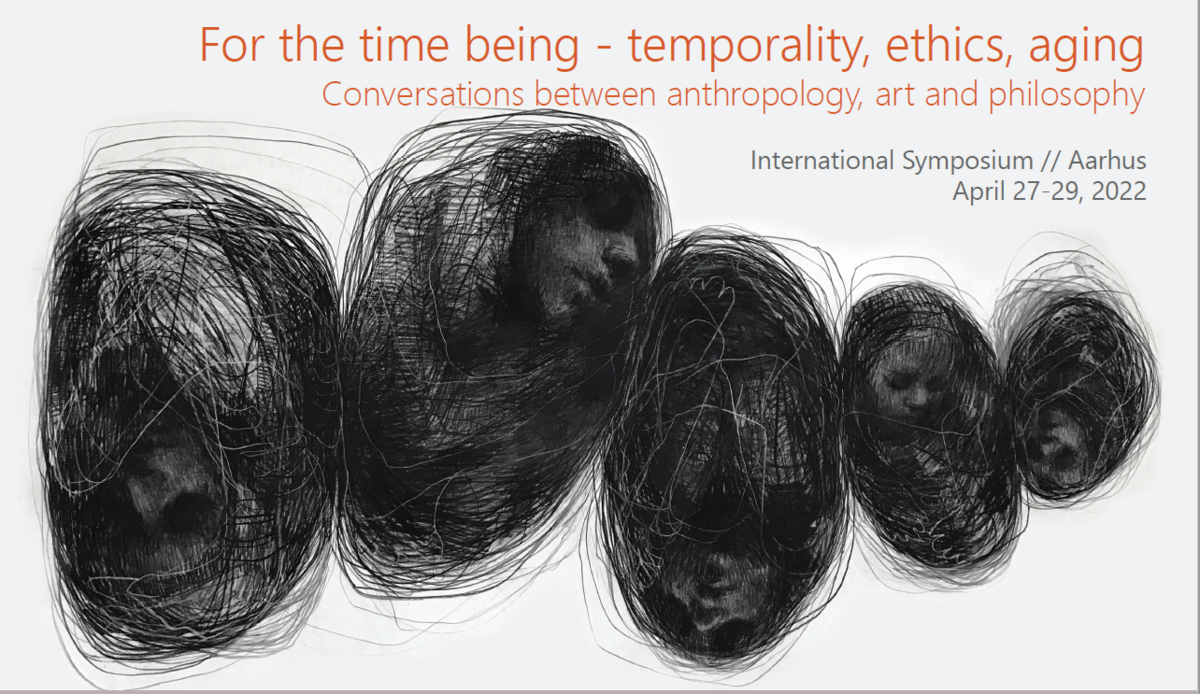
Humans are time beings - beings who have perceptions of past, present and future. We care about time and we work on our experience of time. We plan, we hope, we regret, we reflect upon the past, we worry about the future, we cherish the moment, we lose track of time. With old age, do temporal horizons change and what kinds of ‘time-work’ do elderly engage in?
Humans tend to forget that everything is temporary – that what happens now is just ‘for the time being.’ We try to remind ourselves and others that things will change, but is it the case that experiences of impermanence and finitude increase with aging? In old age, one may be living with chronic diseases that have a certain stability, but one’s body may also change dramatically. Frailty appears and disappears; people around you die – a reminder that living is temporary and that death is part of life and will come also to you.
Is there a gift ‘for the time being’ in old age – the experience of another way of being in time? A present of the present, a gift of time? Can we explore good old lives not as successful and active aging, but as meaningful decline without falling into romanticizing stereotypes? Might new forms of suffering that arise also fracture or destabilize earlier understandings of a meaningful life?
In this symposium, we ask: How do temporal perspectives on lived time and time left change with old age and what are the roles of inter- and intra-generational dynamics in elderly’s perspectives on past, present and future life challenges and horizons? How does historicity play into experiences of lived time, worries about the future, and time-work in old age? And how may explorations of temporality, ethics and aging inform ongoing theoretical discussions in the anthropology of ethics and morality, philosophical anthropology and responsive and critical phenomenology?
The symposium is organized around the research project “Aging as a human condition – radical uncertainty and the search for a good (old) life” where philosophers, artists and anthropologists have been exploring four themes: the mindful body, home space, intimate others and lived time. There is already burgeoning research on the good life in old age framed as successful aging as well as critical gerontological and anthropological work on inequality and the social construction of old age. This project has taken a different approach to the good old life in challenging life circumstances: a comparative experience-near and phenomenological approach that speaks to broad humanistic concerns and puts philosophy, anthropology and art in dialogue. In this symposium we explore the fourth theme – that of time. The uncertainties that emerge with old age are not only those of bodily function, financial means, and social and medical support, but that of time itself - how much is left, how to fill it, how to keep it moving ahead and how to live with human finitude.
The project is funded by the Velux Foundations, with contributions from AU, AIAS and VIVE. The project exhibition “Growing Old” at Moesgaard Museum will be part of the symposium.
Joel Robbins (Cambridge University)
Anne O’Byrne (Stony Brook University)
Robert Desjarlais (Sarah Lawrence College)
Susan Reynolds Whyte (Copenhagen University)
Cheryl Mattingly (University of Southern California)
Lawrence Cohen (Berkeley University)
Jason Danely (Oxford Brookes University)
Tine Gammeltoft (Copenhagen University)
Natashe Lemos Dekker (Leiden University)
Thomas Schwarz Wenzer (Aarhus University)
Tine Rostgaard (Stockholm University and RUC)
Anne Marie Pahuus (Aarhus University)